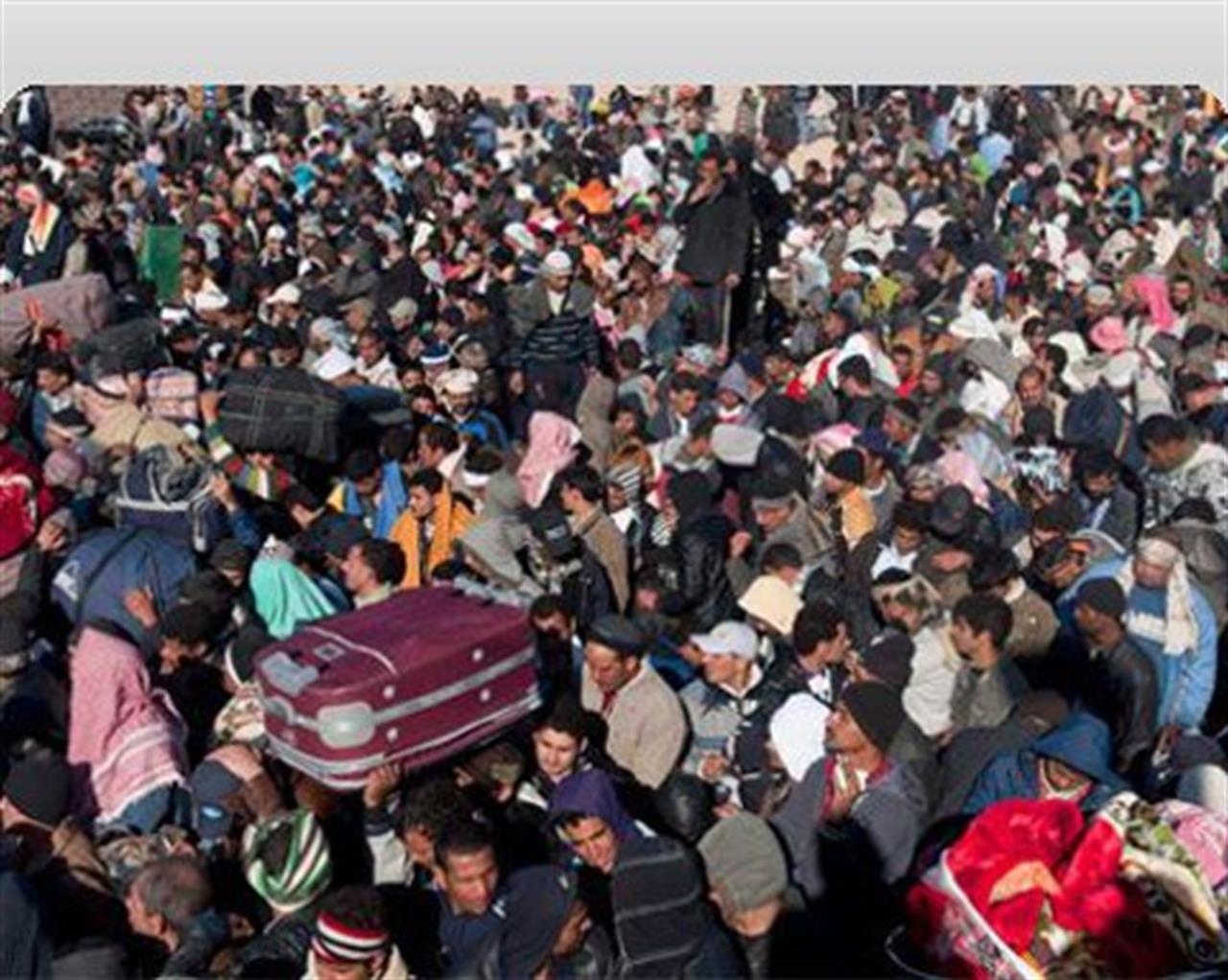By Emanuela Citterio
In the middle of a Civil war which people do not know anything about, NGOs are the first to enter Libya and help civilians .
On February 24, a Doctors Without Borders team managed to arrive in Bengasi through the Egyptian border bringing medicines and medical equipment. “In the city we found about 1800 people injured and a situation under control thanks to the good conditions of the Libyan hospitals”, says Rosa Crestani, who is in charge of the humanitarian emergencies of Doctors Without Borders in Brussels. “We intervened to support the local hospitals that were running out of medical and surgical equipment. At the moment 8 tons of medical supplies have already arrived in Bengasi and other two are on their way from Egypt to Libya.”
Logistics and emergencies.
The logistics of the aid assigned to Libya is centered in Cairo. It is here that NGOs and UN agencies organize their actions according to two main priorities: understanding the needs and verifying the possibility of intervening in terms of access and operating capacity in Egypt. In addition to the immediate health emergency, there is a refugees emergency.
According to the UNHCR, the UN Refugee Agency, 75 thousand people fled the riots against the Libyan regime during the last two weeks of February. A flow that is now relying on neighboring countries. According to Crestani: “there are thousands of people crossing the Egyptian border everyday” but if in the West “the situation is under control” the eastern border with Tunisia is a hotspot and the situation is very tense” even if “the Tunisian government has demonstrated a good ability to manage the stream of people that is now flowing across the border.”
The NGOs are acting on several fronts: Doctors Without Borders has a team of 11 doctors in Libya, in Egypt, in Tunisia and in Lampedusa, the Italian island that hundreds of refugees have tried reaching by boat. On February 28, a UN alimentary program flight, left from the Italian city of Brindisi, carrying 80 tons of energy biscuits to distribute in the Tunisian areas near the Libyan border, through local groups and humanitarian operators.
Childhood SOS
An emergency in itself is represented by minors, since, as it has been highlighted by the president of Unicef Italy Vincenzo Spadafora, “40% of the people involved in the riots in Libya are under 18”. “Unicef doesn’t have an office in Lybia” he explains but “Unicef staff is now leaving for Libya, although we are going through an initial organization phase and it’s being really difficult, given the general conditions of the circumstance.”
Save the Children has mobilized an emergency team to bring first aid to the refugees reaching the countries near Libya, while the staff have been increased in Lampedusa. They have been working for weeks to protect the minors arriving from other North African countries and have already been entrusted to the immigration centers of Puglia and Sicily.
The Italian Council for Refugees (ICR) has asked for a temporary protection to be activated, so that the refugees arrived from Northern Africa during these days, either spontaneously or in organized groups, can have a legal status in the EU territories, while waiting to see how the political situation develops in their countries of origin. This kind of status is granted to groups of people, and doesn’t require the presentation of asylum request applications.
The condition of African migrants who have been living in Libya for years rouses particular concern, since they do not receive any assistance from their governments.
Libyan Caritas has been asked to prepare a list of the most urgent cases to present to the UN refugee agency, in view of a UN intervention.
Translation by Ottavia Spaggiari
17 centesimi al giorno sono troppi?
Poco più di un euro a settimana, un caffè al bar o forse meno. 60 euro l’anno per tutti i contenuti di VITA, gli articoli online senza pubblicità, i magazine, le newsletter, i podcast, le infografiche e i libri digitali. Ma soprattutto per aiutarci a raccontare il sociale con sempre maggiore forza e incisività.

